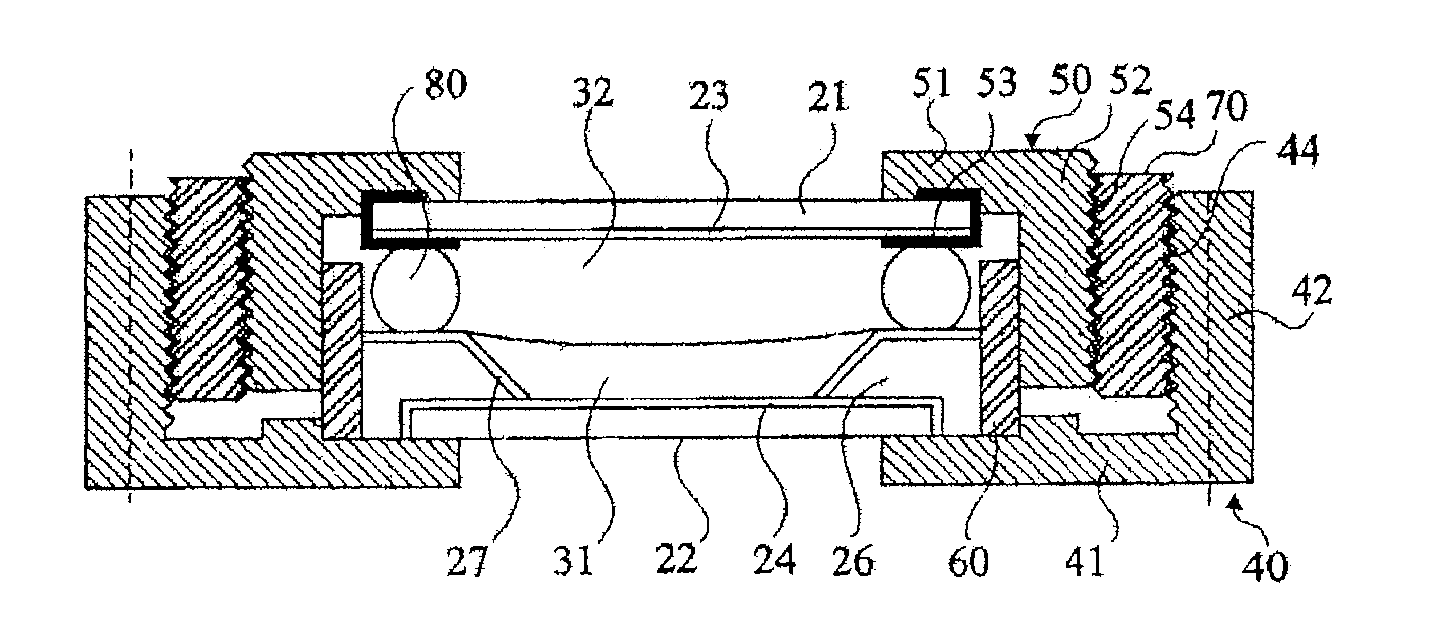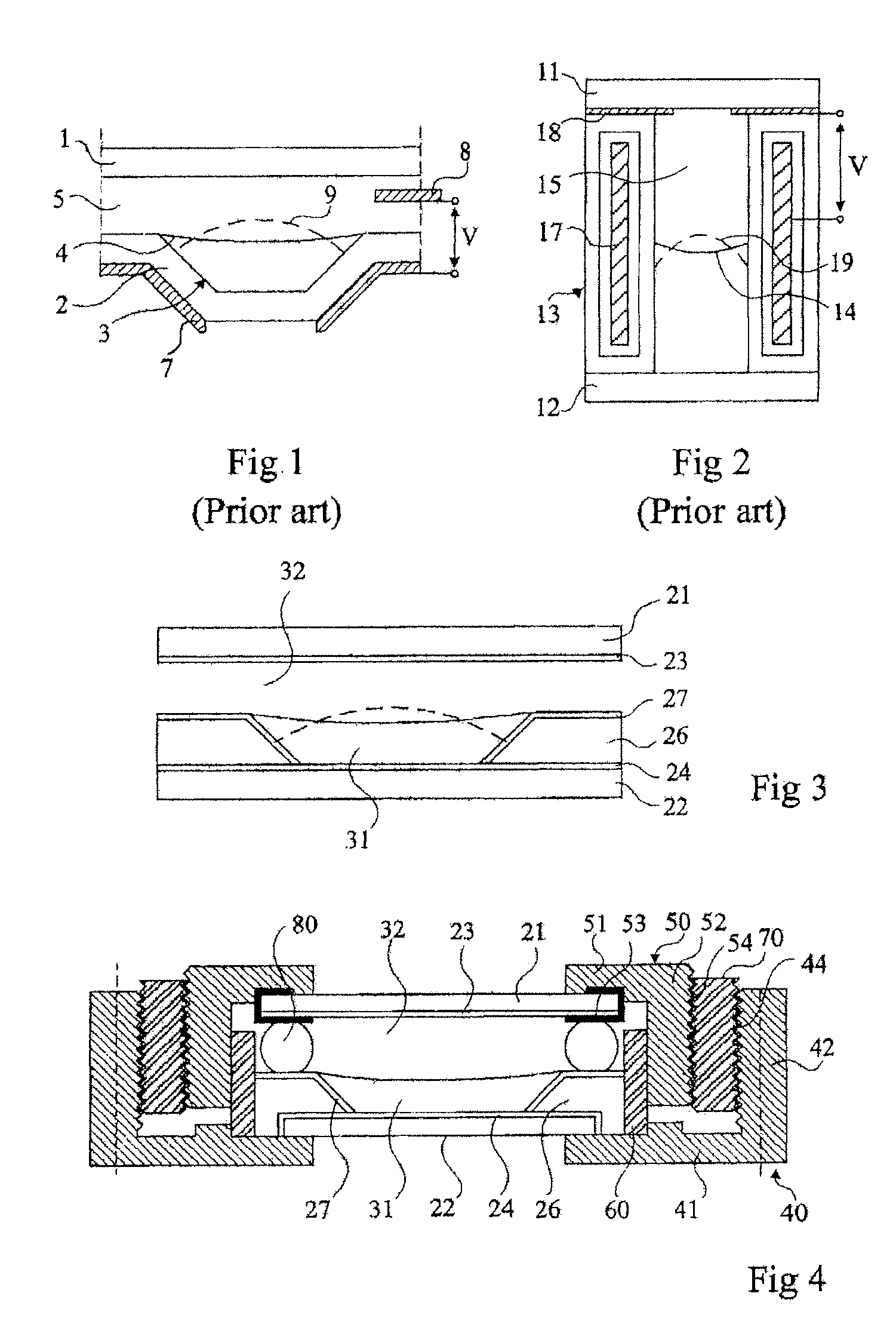Variable-focus lens
a lens and variable focus technology, applied in the field of variable focus lenses, can solve the problems of difficult to expel water from the bottom of the cell, introduce unacceptable optical perturbations, and drawbacks, and achieve the effects of preventing excessive liquid displacement, reducing the difficulty of drop implantation operations, and reducing the difficulty of implantation
- Summary
- Abstract
- Description
- Claims
- Application Information
AI Technical Summary
Benefits of technology
Problems solved by technology
Method used
Image
Examples
Embodiment Construction
[0019]FIG. 3 shows one embodiment of a variable-focus lens cell according to the present invention. The cell is bounded by two plates 21 and 22 made of transparent insulating materials, which are orthogonal to the optical axis of the lens. According to a fundamental aspect of the present invention, which also applies to cells of the types illustrated in FIGS. 1 and 2, these plates consist of, or are coated on their internal walls with, materials having specific wettability properties, namely the internal wall of the upper plate 21 that has to be in contact with the conducting liquid has high wettability for this conducting liquid and low wettability for the insulating liquid and the internal wall of the lower plate 22 that has to be in contact with the insulating liquid has wettability characteristics the reverse of the above.
[0020]In the standard case in which the conducting liquid is an aqueous liquid and the insulating liquid is an oily liquid, the material or coating of the uppe...
PUM
 Login to View More
Login to View More Abstract
Description
Claims
Application Information
 Login to View More
Login to View More - R&D
- Intellectual Property
- Life Sciences
- Materials
- Tech Scout
- Unparalleled Data Quality
- Higher Quality Content
- 60% Fewer Hallucinations
Browse by: Latest US Patents, China's latest patents, Technical Efficacy Thesaurus, Application Domain, Technology Topic, Popular Technical Reports.
© 2025 PatSnap. All rights reserved.Legal|Privacy policy|Modern Slavery Act Transparency Statement|Sitemap|About US| Contact US: help@patsnap.com


